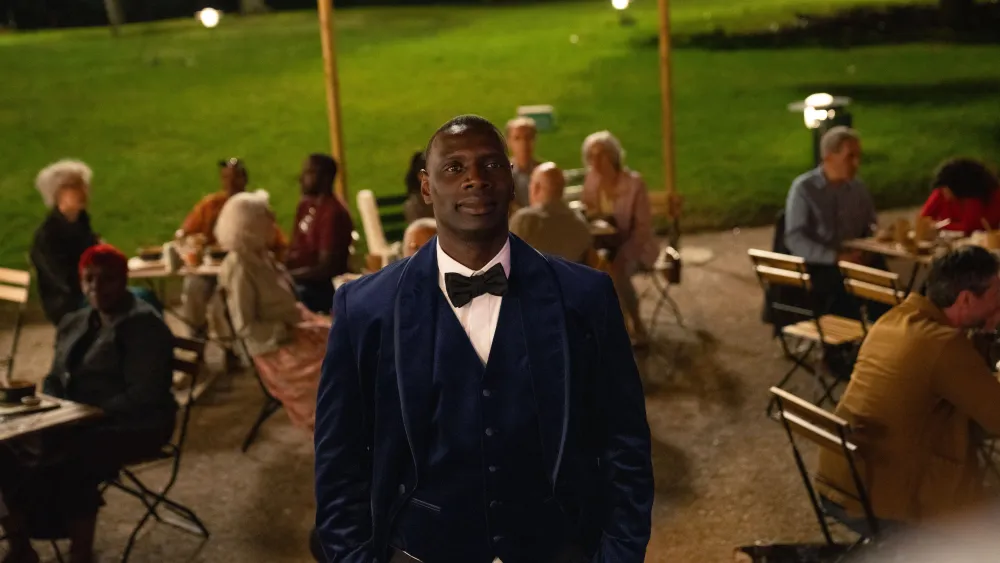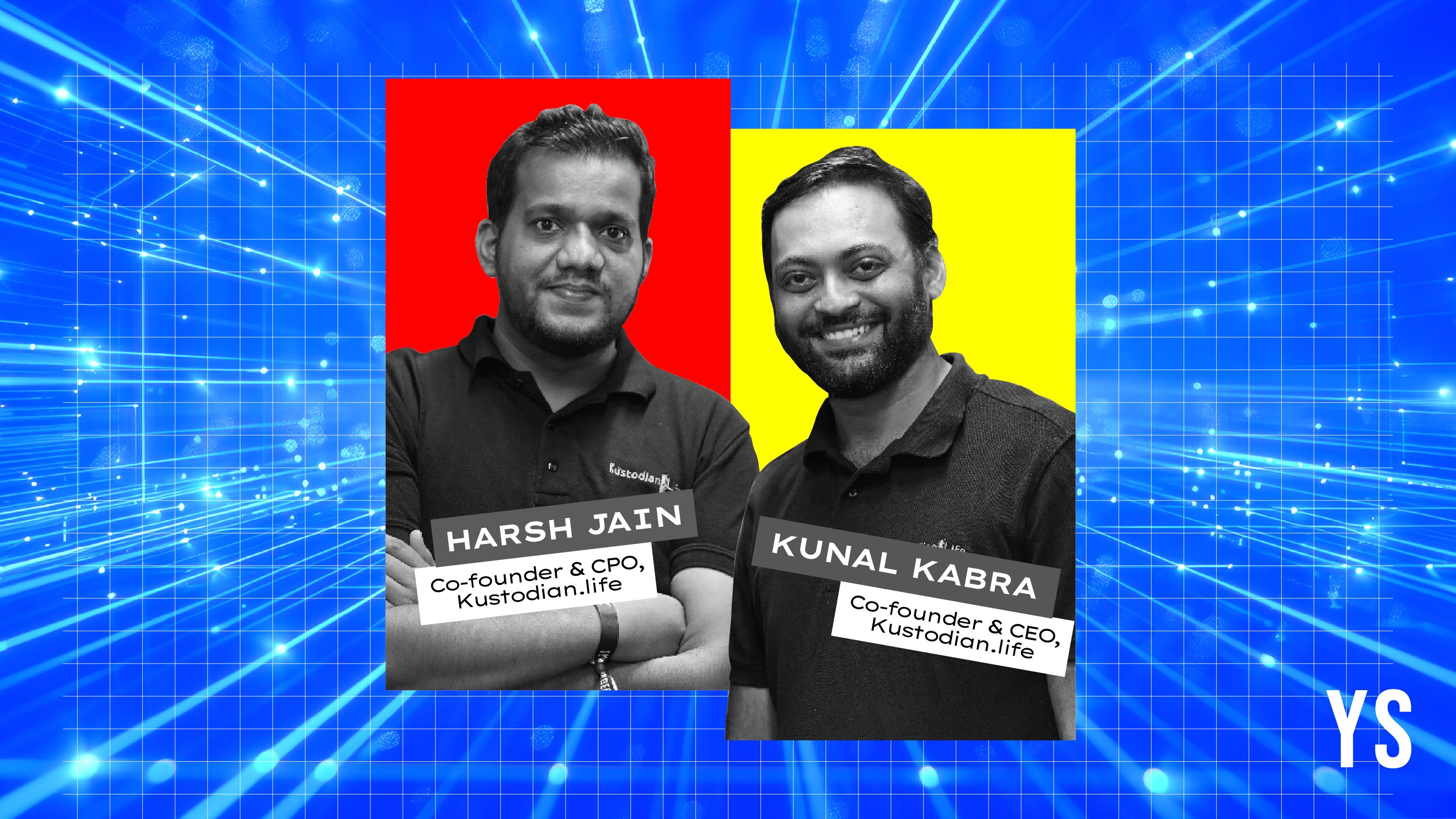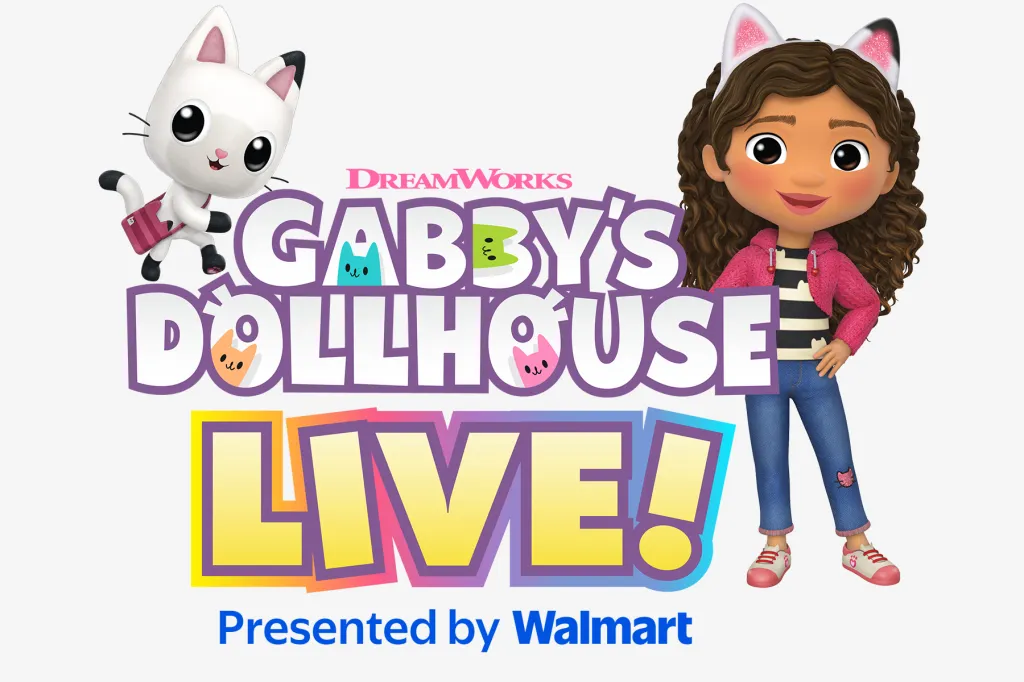
When French actor-producer Omar Sy started working on the Netflix romantic comedy “French Lover,” what scared him the most wasn’t playing a sex symbol or showing some skin for the first time. It was depicting the French showbiz world in a way that wouldn’t make it a caricature.
In the Paris-set movie — which launched globally on Friday — Sy stars as Abel Camara, a famous yet jaded actor who’s just been dumped by his actress girlfriend. He unexpectedly falls in love with a down-on-her-luck waitress (Sara Giraudeau), who is going through a divorce and doesn’t care about his fame.
The feature debut of Nina Rives, “French Lover” also sees Camara and his entourage, including his agent (Pascale Arbillot) and childhood friend (Alban Ivanov), navigating the ups and downs of the film industry as the popular actor vies for more “serious roles.” The movie reteams Sy with Hugo Gélin, who previously directed him in the French box office hit “Two Is a Family” and served as artistic producer on “French Lover.”
“Since we were making a film about the industry and we’re in a somewhat closed environment, it was a bit difficult to determine the level of criticism and self-mockery, so we thought about that a lot,” says Sy, who also produced the film with his banner Korokoro Productions alongside Zazi Films and Federation Studio France.
“We tried to be careful, meaning not to be too harsh on ourselves, but at the same time, not to be too nice either — to have the right distance from it all and to ensure there was some tenderness, because we love our business,” adds Sy, who lives between Paris and Los Angeles and is currently doing some intense physical training for his next role as a mercenary in “Extraction,” the upcoming show directed by the Russo Brothers.
Speaking to Variety via Zoom, Sy discusses making his romantic comedy debut, building a career in France and the U.S. after winning a César Award 15 years ago and being involved in projects as a producer to avoid being typecast. The outspoken actor and producer, who notably made “Father and Soldier” (about the Senegalese riflemen during WW2), also addresses racism in France, saying that “as a Black Muslim, I experience much more racism in France than in the United States.”
How was working with Nina Rives on her debut feature?
I think it’s no secret that Nina is Hugo Gelin’s wife. When we did “Two Is a Family,” there was a moment when Hugo Gelin had to leave for personal reasons during filming and Nina took over the set for two days. I really saw that she was a true director, that she really had a way of seeing things, of filming. Nina is very talented as an artist and on personal level, she’s important to me. We became friends at that point.
When she told me about this project, I wanted to support her in this. She came up with the story and at first was thinking of a series, but I thought to myself, ‘Actually, it’s more of a rom-com movie.’ And then we started developing it and we came up with this script, with an ending that we all liked, and we said, ‘Go, that’s it, let’s do it.’ And then we had to find who would play the female lead. It took us a while.
You found Sara Giraudeau, who is not the typical romantic comedy acto. But you two have great chemistry!
We did a big casting, and when Sara’s name came up on the list, it seemed obvious that she was the right one. We told ourselves, “If she accepts, it’s wonderful.”
Did you do a chemistry read?
No. First it was important for Nina and Sara to meet and have Sara read. Then she met me. We read a bit together, and the surprising thing is that it clicked pretty fast and naturally with Sara. She’s fairly laid back and I feel like she has the same approach to the material as I do, in a way that’s instinctive and organic and also quite attentive. So it all came together really naturally, effortlessly.
We’re not used to seeing you do sensual scenes. Were you comfortable?
The great thing about it is that we developed this project and script together with Nina. That’s why it was right place for me to try this genre, because I trust Nina and she also knows my modesty. When we developed the final script, it filtered all the things I was capable of doing or not.
Did you work with an intimacy coordinator?
You know, it’s their obligation to offer it to you. Then it’s up to us actors to accept or not. And we didn’t need it. The scenes we had to play didn’t require it for us, either for Sara or for me. It was also a matter of trust. But yes, they offered it to us, because now it’s mandatory.
What were the references for “French Lover”?
We have a lot of American and British references, but Nina would be better at explaining what she wanted. In any case, we wanted to stick with what we liked in that genre. There may be some retro aspects, which we fully acknowledge. You could say that the closest thing to “French Lover” is a reversed “Nothing Hill.” So my character is like Julia Roberts!
But your character in “French Lover” is much nicer than Julia Roberts in “Notting Hill.”
Well, Abel may be a bit more endearing and everything, but he still has a dark side. And that was important to accept and put into the film.
How much of Omar Sy is there in Abel Camara?
It’s difficult for me to say. I wouldn’t be able to say. In fact, I think that would be a question for my loved ones or my close friends, or my close colleagues who are with me on a daily basis. I’m the least qualified to answer that!
I just saw “Jay Kelly” with George Clooney, who suggests that being an actor can make you feel schizophrenic. Was it difficult to play another version of yourself?
I mean, the life of an actor is schizophrenic in the sense that we’re always playing people, but I don’t have any difficulty with that. What was difficult for me was to set the bar. Since we were making a film about the industry and we’re in a somewhat closed environment, it was a bit difficult to determine the level of criticism and self-mockery, so we thought about that a lot. We tried to be careful, meaning not to be too harsh on ourselves, but at the same time, not to be too nice either — to have the right distance from it all and to ensure there was some tenderness because we love our business.
In the movie, your character Abel is chasing a role that he thinks could land him a César Award. Was that inspired by your own experience? You won a César for your role as a caretaker in the 2009 film “Intouchables,” and your career took off in a big way after that.
The thing is, I won a César without meaning to. Basically, when I was given a leading role in “Intouchables,” I was just so happy to have a leading role. I worked hard because I wanted to live up to the trust that Eric (Toledano) and Olivier (Nakache) placed in me at that moment. In the end I won a César, but when I started working on the film I didn’t have the César in mind at all.
When I got that recognition, it gave me so much confidence. That César Award opened doors for me. I told myself for the first time, “OK, I’m an actor, so I can go after lots of roles and projects and I can do lots of things.” But remember that at the time, I was doing those sketches on SAV [the short-form comedy segment that was airing on primetime Canal+], so when I got the César Award, the next morning I was back at work writing my sketches.
Do you feel that you have to star in auteur films to be taken seriously in the industry?
I can see that journalists, critics and even some professionals and some directors are saying: “What does he really want to do? What is his type of cinema?” For me, cinema is cinema. There is no type of cinema. I’m someone who likes to tell stories. Genre is just a form and a vehicle, but the essential thing for me is the stories. That’s what I like. That’s my job.
What kind of roles to you get offered in France versus in the U.S.?
That’s where I come in as a producer, because I need to create my own “toys” because there is something quite repetitive about roles that I’m offered. People often suggest things they’ve seen and liked about you. What I love about my job, especially in my experience in this profession, is that I’m lucky enough to be able to do so many different things. I like novelty and I want to feel like I’m constantly renewing myself. Whether it’s in the United States or France, there’s something repetitive about the business, and you have to be able to shift gears. And to do that, sometimes you have to develop your own projects, otherwise that’s when they pigeonhole you and that’s when it becomes less interesting.
Do you think you’ll get more roles in romantic comedies after “French Lover”?
Precisely, because they’ll see me in this film so they’re going to offer me some similar roles. Whereas before, they didn’t.
Are you personally a fan of romantic comedies?
We all have our favorite classics. I have a soft spot for “When Harry Met Sally” and “The Bridges of Madison County” which is more on the melodramatic side. “La La Land,” the love story in that film really struck me.
You’re also obviously into action films. In “French Lover,” we see you doing a stunt scene that goes south. Have you ever risked your life doing a stunt?
I really like things that are a bit action-packed and with everything I’ve been able to do in the United States, it’s made me want to do even more. So whenever there’s an opportunity to do it in France, I try! So it’s true that there’s been time when I found myself in situations where I told myself, “Damn it, I have five kids! What the hell am I doing here?” But still I love challenging myself.
I recently read an interview in which you said you faced more racism in France than in the U.S.
To set the record straight on that, I was being questioned by a French journalist about Trump’s politics and I didn’t understand why I was asked about that when I don’t vote in the U.S. Even if I live there [in Los Angeles], I’m much more attentive to what is happening in France than in the U.S. Of course, regarding Trump we know about his politics and where it’s taking us. I am more affected by racism in France than in the United States, and I feel, as a Black Muslim, that I experience much more racism in France than in the United States. And let’s be clear about this: we can look at Trump and point the finger at him, but what I’m saying is, “Let’s clean up our own backyard.” Just the way I’ve been slammed for speaking up about France is racist in itself, as if I wasn’t allowed to have an opinion about France because I live in the U.S. and I’m the child of immigrants. So basically, that means I’m not grateful, but I’m as French as everyone else. The fact that my opinion about France is being questioned is proof that there is racism in France.
You’re next going to star in “Dumas: Black Devil,” a film about Thomas Alexandre Davy de la Pailleterie Dumas, the father of the French author Alexandre Dumas who became the first Black leader in the French military and served under Napoleon Bonaparte. What can you tease?
I’m not going to play that main character [it will be played by Theo Christine]. But yes, we are very happy to be able to tell this story and shine a spotlight on this character who is actually known without being known.
And we’ll also see you in the fourth season of “Lupin,” which wrapped filming earlier this month. I heard you were very involved in the writing of this new season.
I was artistic producer on the previous seasons and on this new season, Louis Leterrier and I were co-showrunners, so we enlisted Carrousel Studios [their production company].
How was it to be a showrunner for the first time?
Tiring! It was five months nonstop. It was exhausting, but it was also really exhilarating to be in the driver’s seat. You can take the project wherever you want, and we’re pretty happy with the season we’ve put together. We tried to bring something new to the table, to keep the DNA of “Lupin” while introducing something new. That was kind of the challenge, and I feel like we succeeded.



